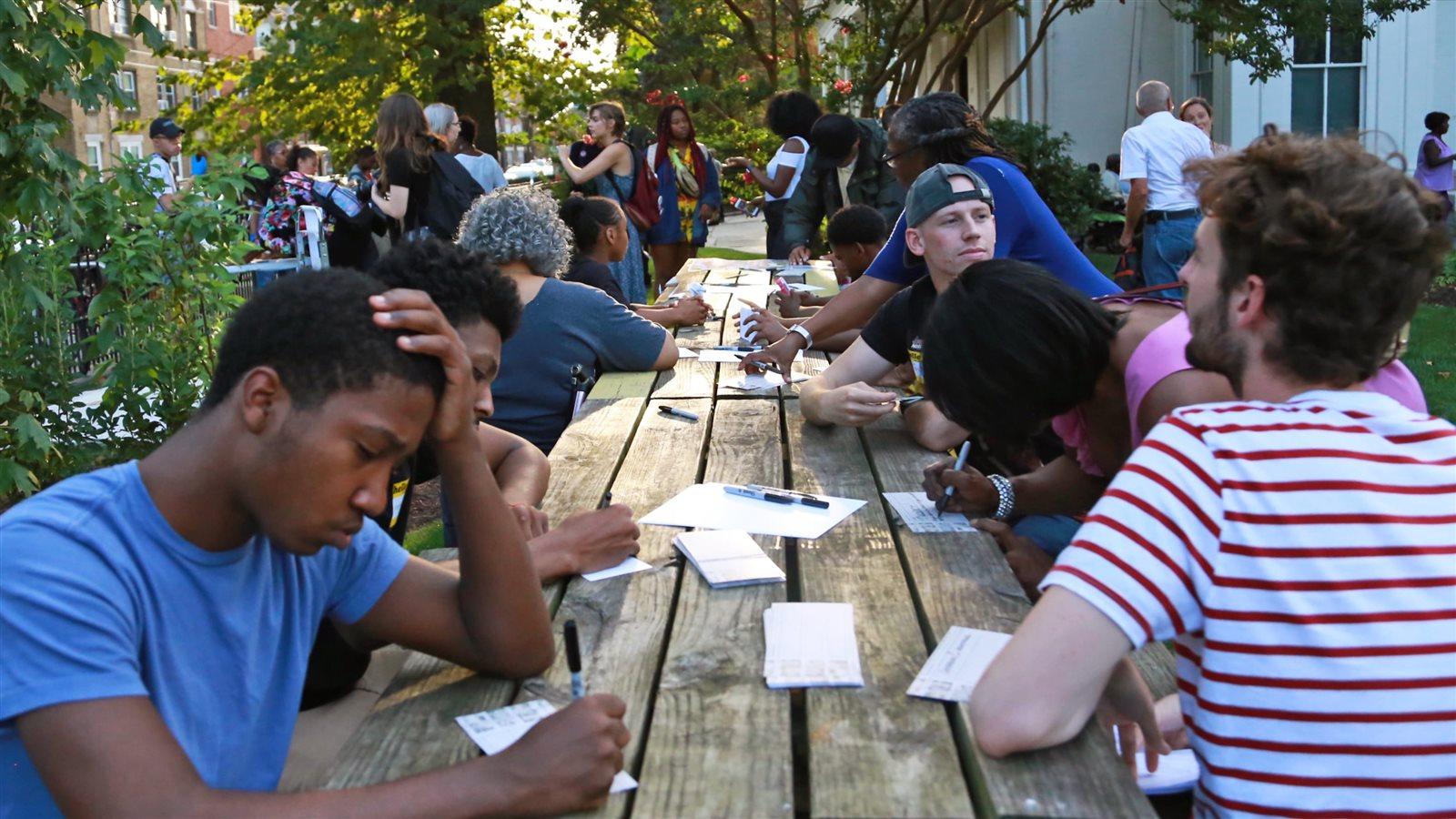Drexel Receives Inaugural Mellon Foundation Grant in Support of Humanities Approach to Social Justice
 By Emily Storz
By Emily Storz

- On the Trail of Deepfakes, Drexel Researchers Identify ‘Fingerprints’ of AI-Generated Video
- New AI-Technology Estimates Brain Age Using Low-Cost EEG Device
- Five Ways Drexel Students Can Get Involved with the Community, as Seen at Civic X EarthFest
- Bolstered by Research Consortium with Drexel, Jefferson’s Sidney Kimmel Cancer Center Earns NCI Comprehensive Cancer Center Designation

Drexel University is one of 26 institutions nationwide to receive an inaugural Higher Learning Open Call grant from the Mellon Foundation in support of social justice-related research and projects. The Mellon Foundation is the nation’s largest funder of the arts, culture and humanities. The $500,000 grant will provide funding for UnMapping: A Project of Radical Textual Geographies. The project aims to bring the literary and broader humanities imagination to bear on urgent issues of social justice in the West Philadelphia community and beyond. Writers Room, Drexel’s university-community literary arts program, is the academic center for the UnMapping project.
“We are grateful to the Mellon Foundation for recognizing the importance of bringing the literary imagination and humanities to bear on social justice issues so many address through their writing,” said Drexel President John Fry. “The UnMapping project aligns with Drexel’s mission to address society’s challenges through an inclusive learning environment, experiential learning, external partnerships, transdisciplinary and applied research, and creative activity. UnMapping will elevate the importance of public humanities in developing the next generation of scholars, practitioners and activists.”
Announced in Spring 2022 as a means of continuing to support inquiry into issues of vital social, cultural, and historical import, the open call invited proposals from institutions exploring three distinct topical categories – civic engagement and voting rights, race and racialization in the United States, and social justice and the literary imagination – in an effort to help illuminate the significance of voting rights controversies in U.S. history from numerous humanities perspectives; demonstrate the complex import of race and racialization within U.S. culture and society; and highlight the role of the literary imagination in making and remaking worlds and societies, past and present.
Open to any accredited, non-profit, four-year liberal arts degree-granting institution in the U.S. with more than 1,000 full-time degree-seeking undergraduates and multiple humanities degree programs, the call generated more than 280 submissions from 150 institutions. From the initial applicant pool, 26 institutions were selected to develop full proposals and were confirmed to receive funding.
Building on Drexel’s strengths in cooperative education and civic engagement, UnMapping’s ultimate goal is to create greater access to education in the neighboring community and to serve as a national model for institutions and organizations involved in this work.
“UnMapping involves questioning established norms and challenging the status quo,” said Rachel Wenrick, founding director of Writers Room and associate teaching professor in Drexel’s College of Arts and Sciences. “This project insists on privileging partnerships and presence over hierarchy by positioning all participants as potential teachers and students. Throughout Writers Room’s past eight years, we’ve found this orientation allows the once-transactional to become transformative.”
Writers Room, established in 2014, is a literary arts program engaged in creative placemaking and art for social justice. This diverse, intergenerational collective of Drexel students, alumni, faculty, professional staff and West Philadelphia neighbors is focused on building co-creative places that foster connection and a sense of belonging. Writers Room provides its members with the time, space, and expertise needed to tell their stories, listen to others' stories, and examine their experiences for commonality, discord and meaning.
With the help of the Mellon Foundation’s grant, the three-year project will link, support and amplify the work of four distinct initiatives:
UnMapping Literature Fellows
Project lead: Valerie Ifill, assistant professor of Dance, Department of Performing Arts, Antoinette Westphal College of Media & Design; and director of Community-Based Learning
This program will provide support for up to seven Drexel and community scholars producing cutting-edge research or public projects that engage literature or cultural texts in a way that advances or explores thought and action around social justice issues.
Experimental Curricula
Project lead: Carrie Hutnick, associate director, Community-Based Learning, Lindy Center for Civic Engagement, Office of University and Community Partnerships
Utilizing Drexel’s established model of community-engaged and experiential learning, faculty will be invited to develop new, interdisciplinary, public-facing courses that bring multi-genre literature, writing and critical scholarship into meaningful conversation with local issues and contexts.
Place-based Programming
Project lead: Lauren Lowe, programs manager, Writers Room, College of Arts and Sciences
This public programming will build on Writers Room’s role as the connective link between Drexel, community organizations, and neighbors by continuing to offer classes with visiting writers, cultural events, talks, monthly workshops and a culminating symposium co-created with community members and UnMapping Fellows.
Satellites: Literature in OtherSpace
The Satellites initiative embodies the core mission of UnMapping: reconceptualizing how, where, among whom, and to what end writing and deep literary study take place. Two major projects comprise this larger program: Humanities at Work and Second Story Collective.
Humanities at Work, led by Elizabeth Kimball, PhD, assistant professor of English in the College of Arts and Sciences, director of the University Writing Program and co-principal investigator of the grant, is a research project and multi-disciplinary humanities course that partners with workplaces, especially justice-informed non-profits, on employee programs that put literature at the center of organizational initiatives, driving creative approaches to organizational change and the work of addressing community problems.
Second Story Collective, led by Rachel Wenrick, founding director of Writers Room, associate teaching professor of English in the College of Arts and Sciences and co-principal investigator of the grant, aims to contribute an alternative anti-displacement strategy for two of the neighboring community’s most pressing needs—affordable housing and aging-in-place options. This collective of artists, activists, architects, and West Philadelphia residents is united by a shared vision: shared living space and shared stories can create a foundation for meaningful cohabitation.
Drexel News is produced by
University Marketing and Communications.